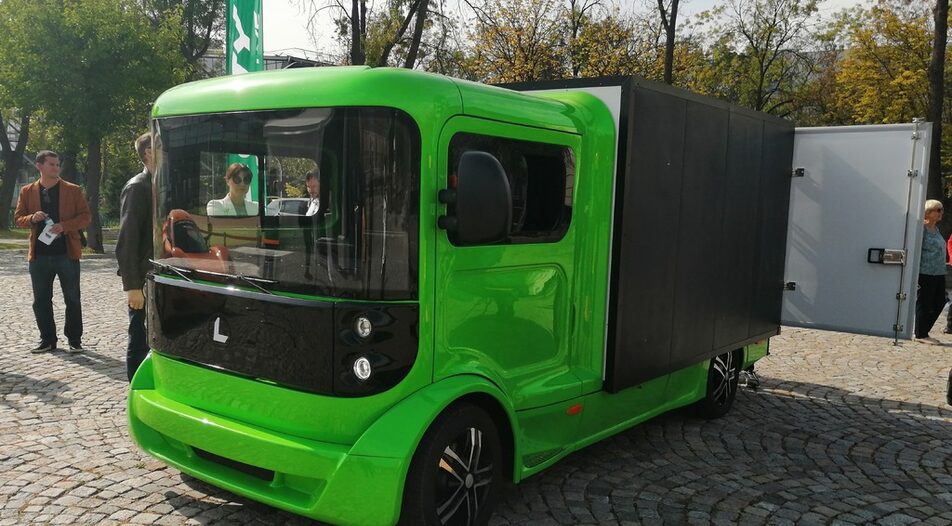Good afternoon on the last Monday of September. As double-election day draws nearer, parties started registering for the vote. But one thing remains unclear - who will be the serious nominees to stand against incumbent President Rumen Radev. Over the weekend, ex-Prime Minister Boyko Borissov said his GERB party would not announce its candidate until the last possible moment. Mr Radev, in turn, challenged Mr Borissov to personally run for office.
Sin Cars Industry launches first e-vehicles, moves assembly operations to Germany
The Ruse-based company sold 2 million shares worth a total of 1 million euro on the Bulgarian Stock Exchange in June this year. During the "Towards a greener future" conference in Sofia Tech Park on Monday, its creator and director Rossen Daskalov said that the first e-lorries have been assembled already. While parts for the semi-solar powered vehicles will be produced in Bulgaria, further assembly operations would be moved to Germany, where the company partners up with the Munich-based L CITY Automotive GmbH, he added. This would be done in the hope of tapping into the larger German market and hiring engineers from the well-developed local industry, Mr Daskalov has said.
Prosecutor General moves out of government residence in Boyana
Following the Bulgarian branch of Radio Free Europe's exposé that Prosecutor General Ivan Geshev has been living at the Bulgarian government's residence in the elite Boyana neighbourhood in Southern Sofia, the Government Information Service announced on Monday he had moved out. Officially, Mr Geshev - who is a magistrate - moved to the villas reserved for the executive after supposed death threats last year. After the fall of the Borissov government in April, the new caretaker Internal Minister Boyko Rashkov dismissed these claims and called for the Prosecutor General to leave the residence.
Over 40 percent of working Bulgarians struggle to heat their homes
According to Eurostat data shared by the Syndicate of European Trade Unions, 42.8 percent of Bulgarians cannot afford heating. This is the second highest proportion in the EU, topped only by Cyprus's 45.6 percent. This makes almost 130,000 people earn less than 60% of the national median equivalised income, which puts them at a high risk of energy poverty, the Syndicate said. "Energy price rises make strong EU action on wages even more urgent," the organization added, calling for the European Parliament to insulate workers against energy poverty by introducing a 'threshold of decency' into the draft EU directive on minimum wages to ensure statutory minimum wages that "guarantee a decent standard of living".
Good afternoon on the last Monday of September. As double-election day draws nearer, parties started registering for the vote. But one thing remains unclear - who will be the serious nominees to stand against incumbent President Rumen Radev. Over the weekend, ex-Prime Minister Boyko Borissov said his GERB party would not announce its candidate until the last possible moment. Mr Radev, in turn, challenged Mr Borissov to personally run for office.












